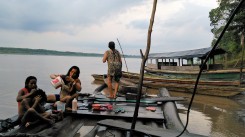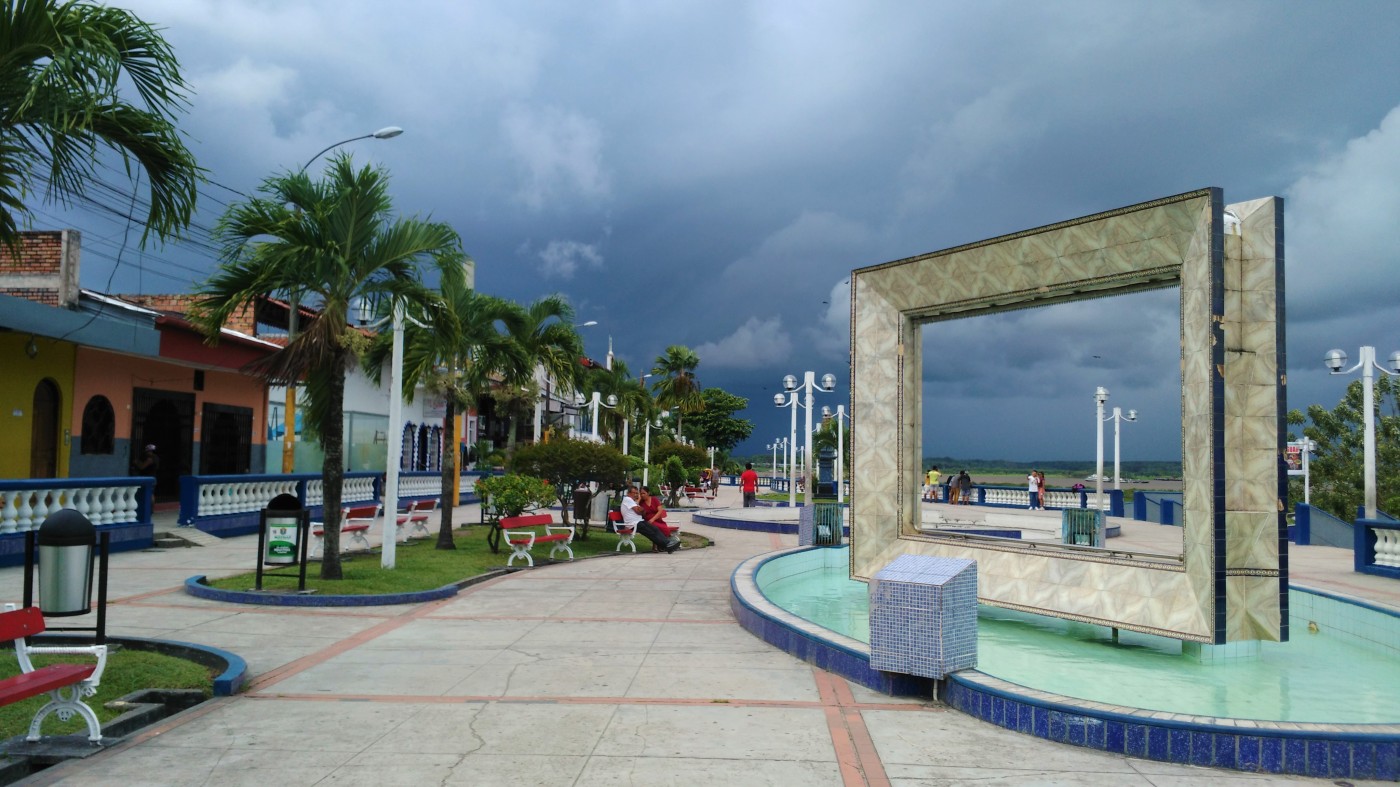We’ve been back from South America for a couple of weeks now and as I settle into my new role I’ve been reflecting on things I hadn’t expected to learn during my time in Peru.
 Language and culture I knew that I needed to learn more Spanish but hadn’t really grasped how much of this wasn’t about learning vocabulary and grammar but learning new ways of thinking. Words, meaning, thought forms and culture are much more deeply connected than I realised. The varied histories of different parts of Peru (and Latin America) continue to shape how people understand themselves today.
Language and culture I knew that I needed to learn more Spanish but hadn’t really grasped how much of this wasn’t about learning vocabulary and grammar but learning new ways of thinking. Words, meaning, thought forms and culture are much more deeply connected than I realised. The varied histories of different parts of Peru (and Latin America) continue to shape how people understand themselves today.
North Americans So we were going to serve in Peru and, while we were going to work with a team with other Brits, our key relationships should be with Peruvians. But in reality, our relationships with people from the US was also key. We made some good friends and lots of links with US folk who also work in Peru. What did I learn? We have less in common than we sometimes imagine. It’s not just that we speak a different language (we have laughed about the words, and exchanged some blank looks…… Americans don’t understand drawing pins, kitchen roll …..How was I to know a ‘hole in the wall’ was a restaurant and not an ATM?) Humour also can get you into trouble – what seems amusing repartee to this Brit can sound quite hurtful to others.
And then there’s politics, understanding why so many voted for Trump, and realising that Southern Baptists are far from the conservative end of evangelicalism in the US (all the Southern Baptist /IMB people I met were lovely).
 Emotional investment You do a lot of saying goodbye as people leave or go on ‘home assignment’. Often there’s a turnover of short term people, who you may work closely with for a period, but everyone is coming and going. It’s not surprising that MK’s (Children of mission personnel growing up in a different culture) often find this difficult, but although I’d never thought of it like this I did come to recognise that my childhood experiences also make me a TCK – which has helped me to understand myself a bit better.
Emotional investment You do a lot of saying goodbye as people leave or go on ‘home assignment’. Often there’s a turnover of short term people, who you may work closely with for a period, but everyone is coming and going. It’s not surprising that MK’s (Children of mission personnel growing up in a different culture) often find this difficult, but although I’d never thought of it like this I did come to recognise that my childhood experiences also make me a TCK – which has helped me to understand myself a bit better.
People have different ways of living with this; including not investing emotionally in relationships. I used to think this weird, now I understand how everyone has to find a way of coping.
Short term visitors tend to arrive with lots of adrenalin and are keen to get stuck in. They keep up a pace and then collapse and sleep on the plane home. Live here for a longer stint and you need to pace yourself and be kind to yourself.
 Technology It’s really weird being in a low tech environment in a high tech world. Often though your phone you have a clearer idea of what’s going on in London and Washington than in Iquitos. We lived in a neighbourhood with no mains water or mains plumbing, but we had Facebook. It’s interesting what you can live without.
Technology It’s really weird being in a low tech environment in a high tech world. Often though your phone you have a clearer idea of what’s going on in London and Washington than in Iquitos. We lived in a neighbourhood with no mains water or mains plumbing, but we had Facebook. It’s interesting what you can live without.
Technology is also changing expectations on mission personnel – you will keep up with your family via facetime; you will regularly update your supporters with fascinating stories and glossy photos – and your mission agency will love short video clips on a regular basis. And yet, too much of this leaves you detached from the local community, living in two cultures at once is really hard.
Culture shock Culture shock / stress is real. We’ve not been in Peru long enough to get the full experience (you probably need to do ten years to get that), but it’s been surprising how much I’ve been affected, especially in returning to the UK.
There is also low-grade stress in living in the midst of poverty. We usually laugh about running out of water (not enough rain), cold showers (you get used to them), the electricity going off and the fact that the insects are out to get you. Then there’s the fact that bars play loud music till 5am so night time is rarely quiet, and the neighbour who uses his chainsaw at 5:30 in the morning….. But we are affluent, we can escape. All of this changes you in subtle ways.
 Finishing off Now we have returned but we are not back. We can’t unsee what we have seen. We can’t live oblivious to how others, outside Europe, live. But we can be grateful and we can determine that we will love God and love our neighbour, wherever in the world they are.
Finishing off Now we have returned but we are not back. We can’t unsee what we have seen. We can’t live oblivious to how others, outside Europe, live. But we can be grateful and we can determine that we will love God and love our neighbour, wherever in the world they are.

Really great reflection Neil, and clearly it’s been a tremendous learning experience and opportunity for personal growth and development. Whilst your experience with a different culture has been more extreme than most, the learning is also applicable to those called to mission in different socio-economic and cultural contexts even in the UK. A helpful and thought-provoking reflection – thank you.
LikeLike